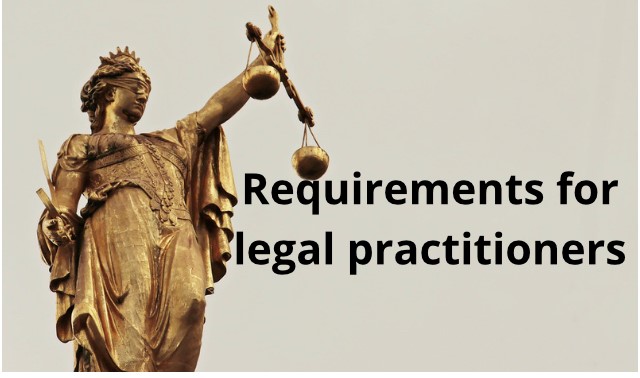
What are the requirements to become an attorney or advocate in South Africa?
LLB students often wonder about the training and steps it requires to become an admitted attorney or advocate in South Africa. We hope this blog will help provide a checklist of statutory requirements.
To become an attorney or advocate in South Africa, a lawyer generally has to meet the following requirements:
- Hold a LLB degree (or foreign law degree obtained in a foreign country, which is an equivalent to LLB).
- Complete practical vocational training (which may include community service) under supervision of a principal (if candidate attorney) or training supervisor (if pupil).
- Be a South African citizen or permanent resident and be a fit and proper person (honest and with integrity).
- Pass competency-based examinations or assessments (different admission exams for candidate attorneys and pupils).
- Complete the prescribed legal practice management course (for candidate attorneys and pupils who intend to practice as “trust account advocates”).
- Provide proof of 1-5 above in a formal court application to the High Court to be admitted.
- Apply to the Legal Practice Council to be enrolled as attorney or advocate and pay a fee.
These requirements are set by the Legal Practice Act 28 of 2014 which governs attorneys and advocates since the end of 2018.
It thus generally takes minimum 4 to 6 years to be admitted as an attorney or advocate in South Africa, depending on the results of your studies, terms of your vocational training, courses you have to attend, timing of your court application and the efficiency of the Legal Practice Council to enroll you.
Some young LLB graduates further find it challenging to secure vocational training fast, as not all of the estimated 13 000 small legal practices in South Africa can afford to offer vocational training to the thousands of LLB graduates finishing studying at South African universities every year.
Such LLB graduates then often opt to finish their LLM degrees before securing/serving vocational training or engage in other career activities. As the journey to admission can get long, due to financial reasons, and lawyers’ diverse interests and skills, many LLB graduates also explore becoming entrepreneurs, business owners, legal consultants, activists, compliance officers, government officials, researchers, academics or corporate counsel, if they do not proceed to admission. An LLB degree therefore creates many career options and opportunities.
To become an attorney or advocate in South Africa truly requires a lot of studying, hard work, commitment, persistence and resilience!
LWFH Management
Information is very helpful. Thanks a lot.
We appreciate your positive feedback.